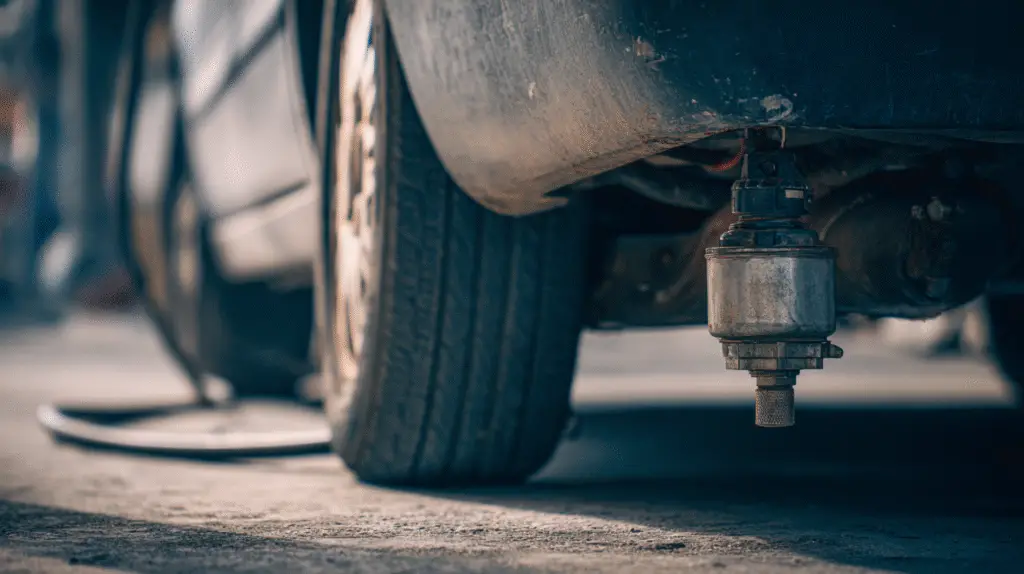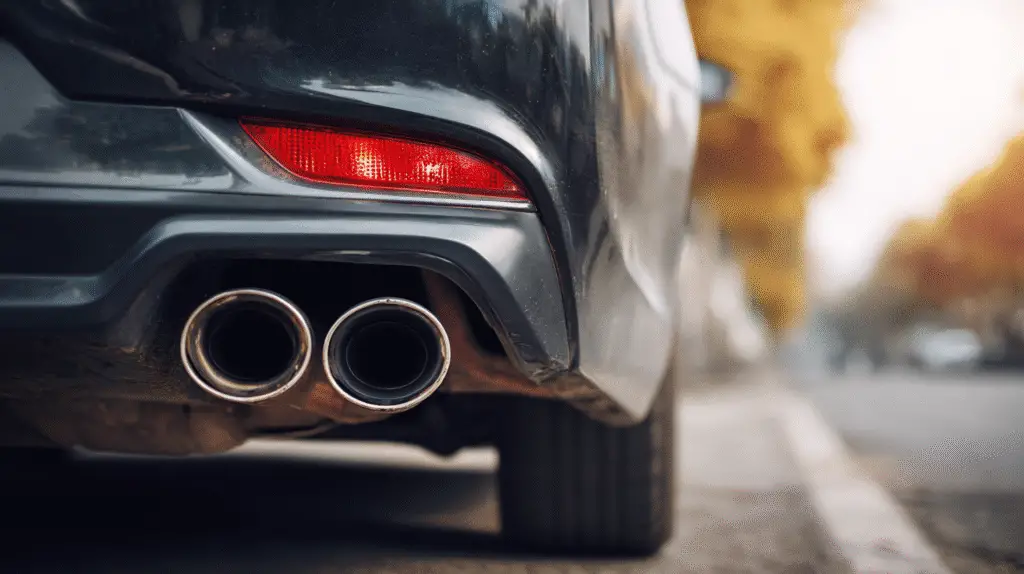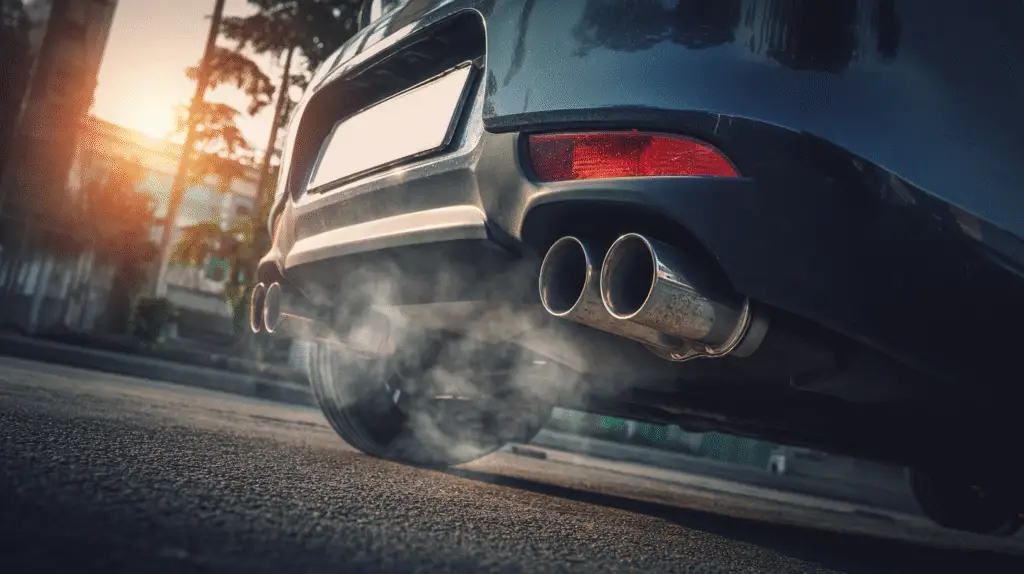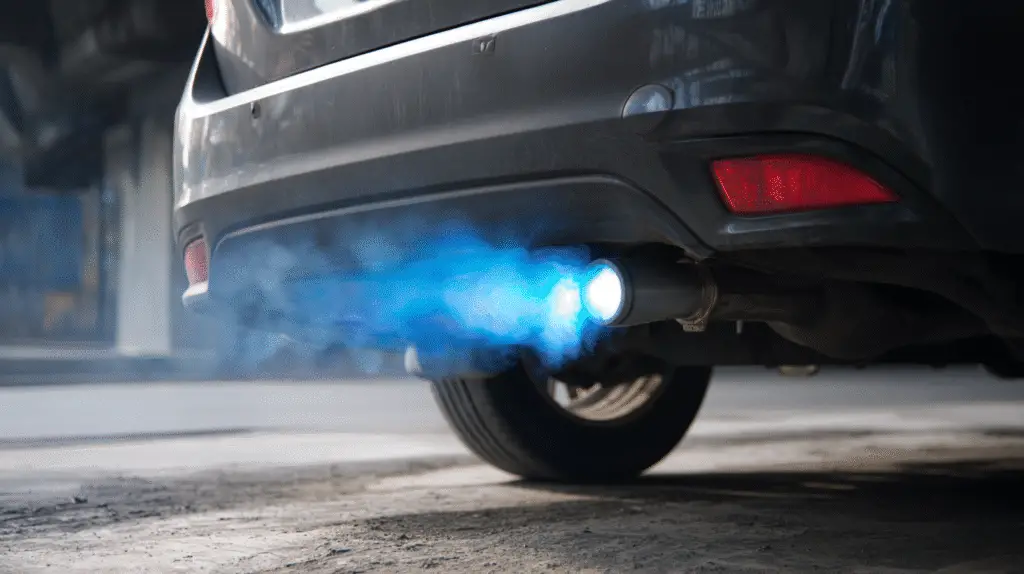Ever noticed that dreaded “Exhaust Fluid System Fault” warning illuminating your dashboard? This common issue affects thousands of diesel vehicle owners, potentially limiting your engine’s performance and leaving you wondering what went wrong.
Diesel Exhaust Fluid (DEF) systems are crucial components in modern diesel vehicles, designed to reduce harmful emissions and keep your vehicle compliant with environmental regulations. When your DEF system malfunctions, it can trigger restrictive driving modes, reduce power, and even prevent your vehicle from restarting. Understanding the causes behind these faults can save you time, money, and frustration.
Understanding Exhaust Fluid Systems in Modern Vehicles
Modern diesel vehicles employ sophisticated exhaust fluid systems to reduce harmful emissions and meet stringent environmental regulations. Diesel Exhaust Fluid (DEF), a solution of urea and deionized water, serves as the cornerstone of these systems by breaking down nitrogen oxides (NOx) into harmless nitrogen and water vapor.
The Role of DEF in Emission Control
DEF works within the Selective Catalytic Reduction (SCR) system to neutralize pollutants before they exit the tailpipe. Your vehicle injects small amounts of DEF into the exhaust stream where it combines with hot gases and triggers a chemical reaction inside the catalytic converter. This process converts up to 90% of NOx emissions into environmentally friendly compounds. Manufacturers calibrate DEF consumption rates to balance effective emission control with reasonable refill intervals, typically achieving 2,500-10,000 miles between refills depending on your driving patterns and vehicle model.
Components of the Exhaust Fluid System
The exhaust fluid system consists of several interconnected components that work together to reduce emissions. The DEF tank stores the fluid and includes level sensors to monitor fluid quantity. An electric pump transfers DEF from the tank to the injection module near the exhaust system. Temperature sensors throughout the system prevent DEF from freezing or overheating, while quality sensors verify the fluid meets required specifications. The control module manages the entire operation, determining optimal injection timing and quantity based on engine load, temperature, and driving conditions.
Common Exhaust Fluid System Faults
Exhaust fluid systems can develop various faults that trigger warning messages on your dashboard. Low fluid levels represent the most frequent issue, occurring when DEF quantity drops below the minimum threshold. Quality sensor failures might detect contaminated or diluted DEF, immediately restricting vehicle performance. Pump and injector malfunctions prevent proper fluid delivery to the exhaust stream, while frozen DEF (which occurs below 12°F/-11°C) renders the system temporarily inoperable. Electrical issues including wiring problems, blown fuses, or control module errors can also disrupt normal operation, prompting fault codes that require professional diagnosis.
What is Diesel Exhaust Fluid (DEF) and How Does It Work

Diesel Exhaust Fluid (DEF) is a crucial component in modern diesel engines that helps reduce harmful emissions. It’s a clear, non-toxic liquid composed of 32.5% automotive-grade urea and 67.5% deionized water that works with your vehicle’s Selective Catalytic Reduction (SCR) system to convert dangerous nitrogen oxides into harmless substances.
The Chemistry Behind DEF
DEF operates through a precise chemical reaction in your diesel engine’s exhaust system. When injected into the hot exhaust stream as a fine mist, the heat causes the water in DEF to evaporate immediately. This evaporation leaves behind urea particles that quickly decompose and release ammonia (NH3). The ammonia then reacts with nitrogen oxides (NOx) in the catalyst chamber, transforming these harmful pollutants into harmless nitrogen gas and water vapor. This conversion is remarkably efficient, reducing NOx emissions by up to 90% in properly functioning systems. Many drivers notice cleaner exhaust and improved fuel efficiency when their DEF systems operate correctly.
The SCR System Explained
Your vehicle’s Selective Catalytic Reduction system consists of several interconnected components that must work together flawlessly. The DEF tank stores the fluid and often includes a heating element to prevent freezing in cold temperatures (DEF freezes at approximately 12°F/-11°C). A dedicated pump and injector deliver precise amounts of DEF into the exhaust stream at exactly the right moment. The SCR catalyst chamber houses the chemical reaction where NOx is converted to harmless substances. Sophisticated sensors and a control module constantly monitor DEF levels, quality, temperature, and system performance. Exhaust fluid system faults commonly occur when any of these components malfunction or when DEF quality is compromised. The control system will alert you to problems through dashboard warnings and may gradually reduce engine power to limit emissions when issues are detected, protecting both your vehicle and the environment.
Common Exhaust Fluid System Faults

Diesel Exhaust Fluid (DEF) system faults can significantly impact your vehicle’s performance and emission control capabilities. Understanding these common issues helps you identify and address problems before they escalate into more serious complications.
Low Fluid Level Issues
Low DEF levels trigger immediate dashboard warning lights and often lead to reduced engine power. Your vehicle’s performance gradually deteriorates as the system detects insufficient fluid to properly treat emissions. These issues typically stem from neglecting regular DEF refills, improper filling procedures that leave air gaps in the tank, or leaks within the system components. Regular monitoring of your DEF gauge prevents unexpected warnings, while proper filling techniques ensure accurate level readings. Checking for leaks around connection points, the DEF tank, and supply lines helps identify potential fluid loss before it affects vehicle operation.
DEF Quality Problems
DEF quality directly impacts your emission control system’s effectiveness and can trigger system fault warnings. Contaminated or degraded fluid fails to properly convert harmful NOx emissions, resulting in increased pollutants and potential engine performance issues. These problems commonly arise from using non-certified DEF, improper storage that exposes the fluid to extreme temperatures, or dilution with other substances including water. Purchasing only API-certified DEF from reputable sources guarantees proper chemical composition. Storing your DEF containers in temperature-controlled environments extends shelf life, while avoiding contact with foreign substances prevents contamination that could damage sensitive system components.
Component Failures
DEF system component failures manifest through poor engine performance, increased emissions, and exact fault codes. Your vehicle’s DEF pump or injector malfunctions frequently cause incomplete spray patterns or insufficient fluid delivery to the SCR catalyst. These failures often result from extended operation with contaminated fluid, electrical issues affecting component function, or normal wear over time. Regular system maintenance includes cleaning DEF crystallization from components, replacing clogged filters, and addressing electrical connections. Professional diagnostic testing identifies exact component failures when dashboard warnings persist even though adequate fluid levels and quality. Preventative maintenance schedules substantially reduce the risk of unexpected component failures that might trigger limp mode restrictions.
Warning Signs of Exhaust Fluid System Faults

Recognizing the warning signs of Exhaust Fluid System Faults early can save you from costly repairs and unexpected vehicle downtime. These indicators often appear before major system failures occur, giving you an opportunity to address issues promptly.
Dashboard Warning Lights
Dashboard warning lights serve as your first alert to potential DEF system problems. The illumination of a exact DEF warning light or an “Exhaust Fluid System Fault” alert on your dashboard indicates something’s wrong with your vehicle’s emission control system. These warnings typically appear when DEF levels run low, contamination occurs within the system, or sensors and injectors malfunction. Crystal buildup and blockages in the DEF lines can also trigger these warning indicators. Many modern diesel vehicles carry out a progressive warning system—initially displaying a simple notification, then escalating to more urgent alerts if the issue remains unresolved. Ignoring these warnings often leads to your vehicle entering a reduced power mode, designed to protect the engine and maintain emissions compliance.
Performance Issues
Performance degradation often accompanies Exhaust Fluid System Faults, manifesting in several noticeable ways. Reduced engine power becomes apparent during acceleration or when climbing hills, significantly impacting your driving experience. Fuel efficiency drops as the emission control system struggles to function properly, costing you more at the pump. Unexpected shutdowns or rough idling might occur due to crystal buildup within the DEF system or severe contamination issues. Clogged DEF lines prevent proper fluid flow to the SCR system, resulting in emission control failure and subsequent performance problems. Many drivers report experiencing hesitation during acceleration when DEF system faults begin developing. These performance issues typically worsen over time if the underlying exhaust fluid system fault remains unaddressed, potentially leading to complete vehicle shutdown in newer models designed to enforce emissions compliance.
Diagnosing Exhaust Fluid System Problems

Diagnosing exhaust fluid system faults requires a methodical approach to pinpoint the exact cause of the issue. Systematic troubleshooting helps you avoid unnecessary repairs and gets your vehicle back on the road faster. By following exact diagnostic steps, you’ll identify whether the problem stems from low fluid levels, component failures, or electrical issues.
DIY Troubleshooting Steps
Start your DIY diagnosis by checking the DEF fluid level, as this simple step often resolves many warning lights. Inspect all system hoses and connectors using a flashlight to identify any leaks that might cause system pressure drops. Connect an OBD-II scanner to retrieve exact diagnostic trouble codes that point to particular components needing attention. Examine the DEF pump’s electrical connections by testing for power at the pump harness; no power indicates potential issues with fuses, relays, or ECU connections. Test NOx sensors according to factory diagnostic procedures, replacing them if their readings fall outside manufacturer specifications. Verify the DEF heater’s functionality by checking power and ground connections with a multimeter, measuring heater resistance to determine if replacement is necessary.
When to Seek Professional Help
Call a professional mechanic when your diagnostics reveal major component failures requiring specialized tools or software. DEF pump replacements, injector repairs, and tank sensor installations typically demand dealer-level equipment that’s not available to most DIYers. Seek expert assistance for contaminated DEF fluid situations, as professionals have the proper equipment to flush and clean the entire system without causing additional damage. Turn to certified technicians when facing intermittent or complex exhaust fluid system faults that don’t produce consistent error codes or when multiple systems appear affected simultaneously. Professional diagnostics become essential when initial troubleshooting steps fail to resolve the issue, especially if your vehicle enters limp mode or refuses to restart after shutdown.
Preventing Exhaust Fluid System Failures

Preventing exhaust fluid system faults requires proactive maintenance and proper handling procedures. Taking preventative measures helps avoid costly repairs, vehicle downtime, and performance issues related to DEF system malfunctions.
Proper DEF Storage and Handling
DEF storage conditions directly impact its effectiveness in your vehicle’s emission control system. Store DEF between 12°F and 86°F to maintain its chemical properties and prevent premature degradation. Temperature extremes can alter DEF’s composition, reducing its ability to neutralize harmful emissions and potentially triggering system faults.
Keep your DEF tank sealed when not in use to prevent contamination from dust, dirt, and other substances that could compromise fluid quality. Contaminated DEF often leads to sensor failures and clogged injectors in your exhaust system. Never mix DEF with other fluids like fuel, oil, or coolant, as this creates harmful chemical reactions that damage your SCR system components.
Quality control matters significantly when purchasing DEF. Only use ISO 22241-compliant diesel exhaust fluid for your vehicle to ensure proper NOx reduction. Check expiration dates before purchasing, as expired DEF loses its effectiveness and may cause system warnings to appear on your dashboard.
Maintenance Best Practices
Regular monitoring of DEF levels prevents your vehicle from entering restricted performance modes. Check fluid levels during routine maintenance stops, especially before long trips where refilling options might be limited. Inspect the DEF system for leaks, particularly around connection points and the tank itself, as leaks commonly trigger exhaust fluid system faults.
Replace DEF filters according to manufacturer recommendations, typically on a monthly basis for commercial vehicles. Clogged filters restrict fluid flow to the injector, causing incomplete NOx conversion and potential system warnings.
Annual comprehensive inspections of your SCR system help identify wear, damage, or corrosion before they cause system failures. These inspections should examine all components, from the DEF tank to the SCR catalyst, ensuring optimal performance and emissions compliance.
Training yourself or your operators on correct DEF handling procedures prevents many common system faults. Learning proper quality testing methods and maintenance routines extends system life and reduces fault occurrences.
Incorporate preventative flushes into your maintenance schedule to remove crystallized DEF deposits and prevent system clogs. These flushes clear accumulation in lines and injectors that would otherwise lead to restricted flow and exhaust fluid system faults.
Conclusion
Taking proactive steps with your exhaust fluid system is essential for maintaining your diesel vehicle’s performance and longevity. By monitoring DEF levels regularly checking for warning signs and following proper maintenance protocols you’ll avoid costly repairs and unexpected downtime.
Remember that the SCR system isn’t just about compliance—it’s a vital component that keeps your engine running efficiently while reducing harmful emissions. Proper DEF handling storage and timely replacement of faulty components will save you important headaches down the road.
Don’t wait until you’re stranded with a vehicle in limp mode. Carry out the preventative measures outlined here and consult professional help when needed. Your diesel engine will thank you with years of reliable service and optimal performance.
Frequently Asked Questions
What is a Diesel Exhaust Fluid (DEF) system?
A Diesel Exhaust Fluid system is an emissions control technology used in diesel vehicles to reduce nitrogen oxide emissions. It works by injecting DEF (a mixture of 32.5% urea and 67.5% deionized water) into the exhaust stream, where it breaks down harmful NOx emissions into harmless nitrogen and water vapor through a chemical reaction in the Selective Catalytic Reduction (SCR) system.
What causes an “Exhaust Fluid System Fault” warning?
An “Exhaust Fluid System Fault” warning can be triggered by several issues: low DEF fluid levels, contaminated or degraded DEF, malfunctioning pumps or injectors, frozen DEF in cold weather, electrical problems with sensors or wiring, clogged filters, or a failing control module. Regular monitoring and maintenance can help prevent most of these issues.
What happens if I ignore the DEF system warning?
Ignoring a DEF system warning can lead to serious consequences. Your vehicle will likely enter a restricted performance mode with reduced power and speed (often called “limp mode”). Eventually, the engine may refuse to restart after being turned off. This is designed to ensure compliance with emissions regulations and cannot be bypassed without proper repairs.
How often should I refill my DEF tank?
DEF consumption typically ranges from 2-6% of your diesel fuel usage. For most passenger vehicles and light trucks, this means refilling every 5,000-10,000 miles. Heavy-duty vehicles may require more frequent refills. Always monitor your DEF gauge and respond promptly to low-level warnings to avoid entering reduced power mode.
Can I make my own DEF fluid?
No, you should never make your own DEF fluid. DEF must meet strict ISO 22241 standards for purity and concentration. Homemade solutions can damage your SCR system, void your warranty, and lead to costly repairs. Always use API-certified DEF purchased from reputable sources to ensure proper emissions control and system longevity.
How do I store DEF properly?
Store DEF in a cool, dry place between 12°F and 86°F (optimal temperature range). Keep containers tightly sealed to prevent contamination and evaporation. Avoid direct sunlight and extreme temperatures. DEF typically has a shelf life of 1-2 years when stored properly. Never use expired or contaminated fluid in your vehicle.
Can cold weather affect my DEF system?
Yes, DEF begins to freeze at 12°F (-11°C). Modern vehicles have heating elements in DEF tanks to prevent freezing during operation. However, extended periods in extreme cold can cause system issues. If possible, park your vehicle in a garage during severe winter conditions and ensure your DEF system’s heating elements are functioning properly.
How can I diagnose DEF system problems myself?
Start by checking DEF fluid levels and quality (it should be clear, not cloudy or discolored). Inspect for visible leaks around the DEF tank and lines. Use an OBD-II scanner to retrieve error codes related to the exhaust system. Check electrical connections for corrosion. For more complex issues, consult a professional technician with experience in diesel emissions systems.
What maintenance does a DEF system need?
Regular maintenance includes: monitoring and replenishing DEF levels, annual inspection of DEF tank, lines, and injectors, replacing the DEF filter according to manufacturer recommendations (typically every 20,000-40,000 miles), checking for crystallization build-up, and ensuring all electrical connections are clean and secure. Follow your vehicle’s specific maintenance schedule for optimal performance.
Is DEF harmful to humans or the environment?
DEF is non-toxic, non-flammable, and non-hazardous when handled properly. It’s primarily composed of urea (a compound found in natural fertilizers) and purified water. However, it can cause mild skin irritation, so wear gloves when handling. If spilled, DEF can corrode certain metals and leave white crystals when dried. Clean spills promptly with water and avoid contact with electrical components.
Related Posts:
